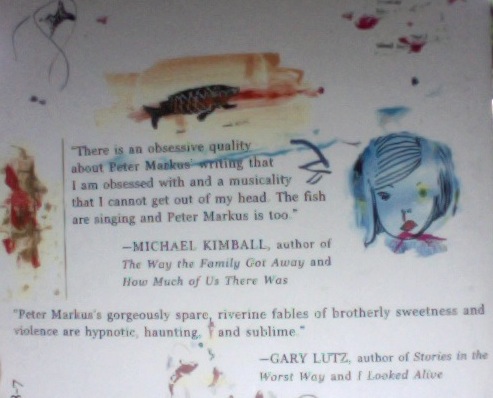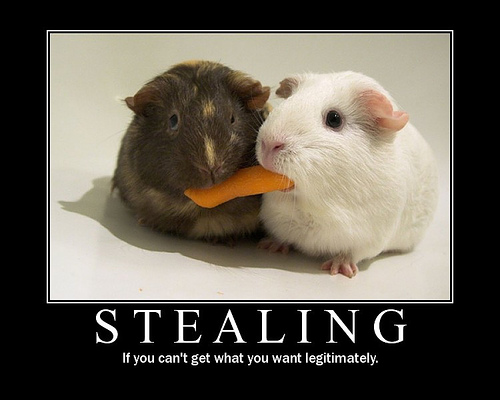Lily Hoang
https://literature.ucsd.edu/people/faculty/lhoang.html
Lily Hoang has published some books and won some awards. She is Director of the MFA in Writing at UC San Diego.
https://literature.ucsd.edu/people/faculty/lhoang.html
Lily Hoang has published some books and won some awards. She is Director of the MFA in Writing at UC San Diego.
Damn near a month ago, Blake saw Catfish and posted about it here. Well, Catfish finally came to my quaint Canadian town, and I saw it last night. It was good. It was scary.
But what strikes me about this film is the obsession (re)viewers have with whether or not it is true. And sure, I’m no different. After I saw the documentary, I went home and immediately plugged into Google to find an answer.
What is our obsession with authenticity? Why do we “have to know” if something is real or not? Of course, not so long ago, there was a big “to do” about James Frey’s A Million Little Pieces, if only because he called some real that was not real. Why does it matter though?

The technical definition of blurb is: “A brief descriptive paragraph or note of the contents or character of a book, printed as a commendatory advertisement, on the jacket or wrapper of a newly published book.”
But the first use of the word, in 1914, by G. Burgess, defines blurb as “a flamboyant advertisement; an inspired testimonial.”
Blurbing is its own art. There are people who blurb books in magical ways, paring down an entire book into a few glowing sentences. I can think of quite a few writers who do this with real flair: Joyelle McSweeney, Brian Evenson, Gary Lutz, etc. They make blurbing seem easy, effortless. I call them magicians.

Happy birthday, Starcherone Books! One of the coolest, smartest indie presses turns ten today, and to celebrate, they’re having a party-reading in New York tonight, featuring kickass publisher Ted Pelton, Donald Breckenridge, Joshua Cohen, Janet Mitchell, our own Alissa Nutting, and Thad Rutkowski.
Starcherone (start-your-own) Books has published tons of beautiful, novel-pushing, genre-pushing, word-pushing books. They are a force. Love them, buy them, adore adore adore! They deserve it.
Show your thanks: buy a book, or, tell us what your favorite Starcherone book is. My favorites fill up an entire shelf…
Back in Season 1, back when Betty Draper was sadly profound and profoundly sad, she said: “I know people say life goes on, and it does, and no one tells you that’s not a good thing. Why is that?” I loved this Betty. I empathized with her sadness. Plus, she’s a babe.
But Betty Draper, now Betty Francis, has become a completely odious character. When did this happen? Do you hate Betty?
Last week, I had a book launch for The Evolutionary Revolution, which came out a while ago, sure, but whatever. It was fun times. It was at a small, independent bookstore. I read in front of the cash register. The bookstore was packed, and I sold a good number of books. It was a “best selling” night for the bookstore.
But then, last night, I went to a friend’s place and met another writer who had his book launch over the weekend at Indigo Books (the Canadian equivalent to Barnes & Noble or Borders), and he told me for his launch, he didn’t read. O no no. They set up a table right at the entrance to the bookstore and had him greet customers as they came in. By the pure virtue of his being a writer—A real writer who wrote and published a real book! How amazing is that?—people bought! He sold more books than I did. And he didn’t even read.
I’ve only been in Geography for four weeks, and I have to admit, I haven’t “learned” a whole lot from classes. I have read a bunch of cool Geography stuff on my own. So rather than vent my frustration about class, I’ll talk about a book.
Benedict Anderson’s Imagined Communities posits that the social/community aspect of citizenship is premised on an imagined solidarity between people based on the arbitrary boundaries of the nation-state.
Let me back up for just one brief digression/explanation: In 1950, T.H. Marshall revolutionized the concept of citizenship by breaking it down to three categories: civil rights, political rights, and social rights. What was so ground-breaking about Marshall’s claim is the addition of social rights into the mix, which ties in notions of solidarity and community. Prior to Marshall, citizenship as a concept focused strictly on the relationship between citizen and nation-state. Marshall acknowledged the power in nationalism, pride, etc.
In order for there to be nationalism–and perhaps more importantly, in order for there to be people willing to die for their nation–there must be a solidarity between citizens (or else: a draft. My comment, not his.), but the key point is that this solidarity is imagined. The kinship felt is imagined, or at least, in its most nascent form, it was imagined. Anderson uses the United States as an example. It is impossible for us to know all 310 million people READ MORE >

Consider these two texts. The first was published on 28 June 2010 at Everyday Genius, the second was published yesterday at Metazen. The second author is very familiar with the first author.
The first text:
Rip off the wings of dragonflies
Rip off the wings of dragonflies, take their “spines,” their central lengths and a bit of paste, affix them down noses, between the eyes, one per customer. A dream.
The most important thing
The most important thing, about this pen, is to maintain inkflow: (the idea that) the ink must flow and continue flowing, at all times.
A Certain Angle
Remember, he said, when loaning it to me, this pen won’t write unless held at a certain angle.
It is said of the Emperor Fu Kang
“It is said of the Emperor Fu Kang: that He, with eyes unflinching, and a hand at peace, would have His enemies, and He had many, executed by decapitation. Further, that He would have their heads scooped out, embalmed then impregnated with magnet: the cavity that held the brain would be filled with iron, mined in the furthest West. During His ample leisure He enjoyed tossing these magnetized heads at a metallic surface. Actually in later years, with His son gaining influence, His Empire modernizing and so falling to ruin, this metal surface was often the door to an enormous refrigerator, then the largest to be found in the universe (opening it required two teams of oxen and an equator of rope). Inside this fridge the Emperor kept his foodstuffs, luxuriously imported at our expense, at a temperature most appropriate.”
So I went to see THE SOCIAL NETWORK on Saturday. In case you don’t know, the film chronicles wild-savant-genius Mark Zuckerberg and his founding of the popular social networking site Facebook. The film opens with Zuckerberg being dumped by his girlfriend. In this opening, he’s portrayed as a insanely smart, unselfconscious genius-asshole. As the film goes on, Zuckerberg continues to play the role of genius-asshole, sometimes, he is marked with a kindness that strikes the viewer more as naive than genuine.
But this is just a film. A film that is based on a book that is characterized more as “juicy fun” than “reportage” (from the Mark Zuckherberg wikipedia page linked above).
That being said, several things fascinated me about this film: